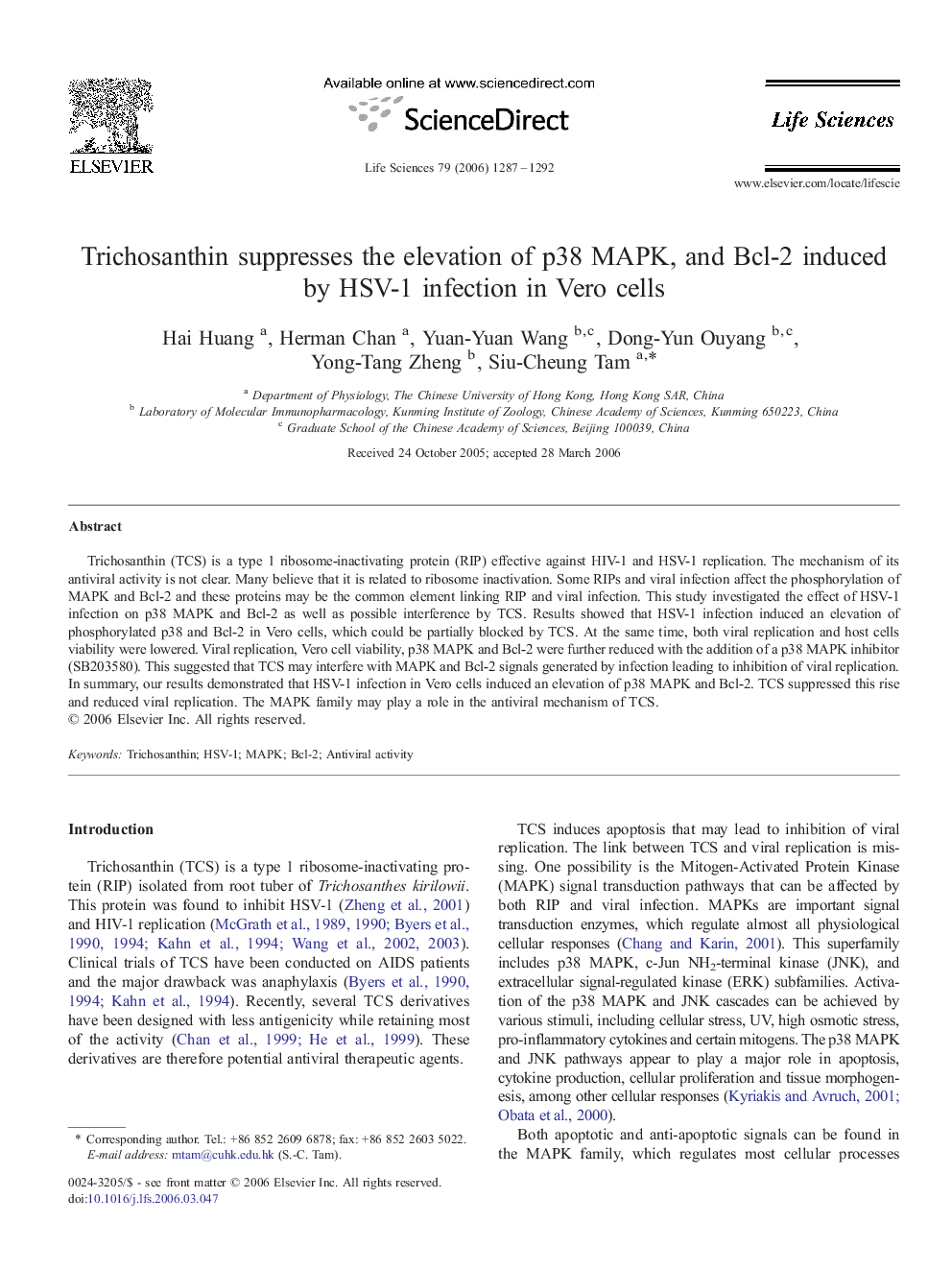| Article ID | Journal | Published Year | Pages | File Type |
|---|---|---|---|---|
| 2554784 | Life Sciences | 2006 | 6 Pages |
Trichosanthin (TCS) is a type 1 ribosome-inactivating protein (RIP) effective against HIV-1 and HSV-1 replication. The mechanism of its antiviral activity is not clear. Many believe that it is related to ribosome inactivation. Some RIPs and viral infection affect the phosphorylation of MAPK and Bcl-2 and these proteins may be the common element linking RIP and viral infection. This study investigated the effect of HSV-1 infection on p38 MAPK and Bcl-2 as well as possible interference by TCS. Results showed that HSV-1 infection induced an elevation of phosphorylated p38 and Bcl-2 in Vero cells, which could be partially blocked by TCS. At the same time, both viral replication and host cells viability were lowered. Viral replication, Vero cell viability, p38 MAPK and Bcl-2 were further reduced with the addition of a p38 MAPK inhibitor (SB203580). This suggested that TCS may interfere with MAPK and Bcl-2 signals generated by infection leading to inhibition of viral replication. In summary, our results demonstrated that HSV-1 infection in Vero cells induced an elevation of p38 MAPK and Bcl-2. TCS suppressed this rise and reduced viral replication. The MAPK family may play a role in the antiviral mechanism of TCS.
